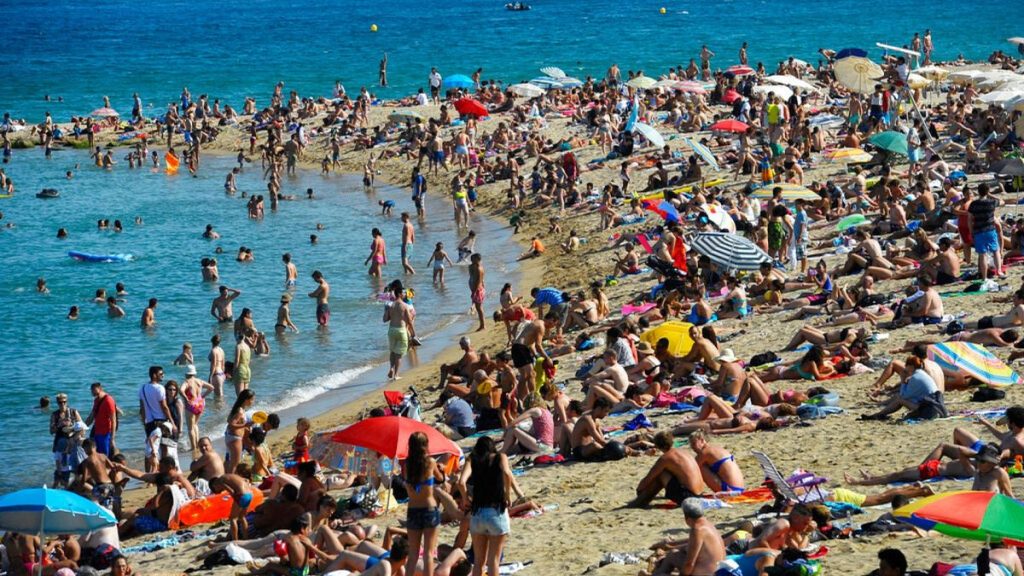Spain’s new short-term rental regulations, implemented in January 2025 and fully enforced by July, aim to address housing shortages and overtourism fueled by platforms like Airbnb. These regulations require property owners to register on a national database, obtain permits, and collect detailed guest information, including bank details. Spain also proposes raising VAT on short-term rentals to 10%, matching hotel rates. Non-compliance risks fines up to €600,000. The government justifies these measures by highlighting the increasing purchase of Spanish properties by non-EU residents for rental income, exacerbating the housing crisis. Prime Minister Pedro Sanchez emphasized the prioritization of housing for residents over tourist use, citing an influx of approximately 27,000 properties bought by non-EU residents in 2023 solely for rental purposes. Further measures include a proposed 100% tax on property purchases by non-EU buyers, including UK citizens.
These regulations arise amidst growing anti-tourism protests sparked by overtourism in various Spanish regions throughout 2024. While local residents protested, Spain experienced a 10% rise in foreign tourists, reaching 94 million in 2024. The new rules, however, have created confusion and uncertainty for property owners due to differing applications at municipal, regional, and national levels. Samuel Toribio, head of Europe at rental platform Homelike, points out the contradictory nature of these overlapping regulations, highlighting Andalucia and Madrid as examples of varying implementation. This lack of standardization creates uncertainty in the market, making it challenging for property owners to navigate the new regulatory landscape.
Airbnb, referencing an Oxford Economics report, warns of the negative economic consequences of these restrictions. The report states that short-term rentals generated €5.4 billion in host earnings and contributed €29.6 billion to the Spanish economy in 2023, including spending in local businesses. Airbnb argues that these restrictions will not only harm hosts but also rural development and small businesses that benefit from tourist spending. The regulations could also negatively impact family tourism by reducing affordable accommodation options in less crowded areas. Data indicates a growing trend of short-term rentals in rural areas, with a significant increase in guest nights spent in these locations between 2018 and 2023. Airbnb emphasizes its role in promoting rural tourism and supporting local communities, arguing that restrictions could reverse this positive trend.
Case studies from cities like Amsterdam, which implemented similar restrictions in 2022, indicate that such measures may not effectively address overtourism. Despite regulations, Amsterdam’s overall guest nights increased by 12%, while short-term rental guest nights decreased by 52%, potentially resulting in €269 million in lost host earnings. This suggests that tourists continue to visit, but shift from short-term rentals to hotels. The Amsterdam example also highlights the emergence of an informal rental market, where hosts operate outside the regulated system, advertising on social media and classifieds instead of official platforms. Airbnb acknowledges the potential impact of short-term rentals on housing costs in popular tourist areas and expresses willingness to collaborate with governments on targeted regulations.
However, Airbnb and experts like Samuel Toribio argue that short-term rentals represent a small fraction of the overall housing stock in major European cities, even in Amsterdam, where they comprise only 1.5%. In Spain, short-term rentals account for a mere 1.2% of housing in Barcelona and Madrid, and even lower when considering properties occupied by owners for part of the year. Airbnb contends that the hotel industry has unduly blamed short-term rentals for housing shortages, deflecting attention from the real issue: insufficient housing supply. Toribio attributes the housing shortage to the slow pace of new construction, increased production costs, a lack of skilled labor, and difficulties attracting investment. He also points to Spain’s 2023 residential law as a deterrent for private landlords.
Airbnb Spain concurs that the core problem is inadequate housing construction, citing a decade of historically low building rates. Data shows that new household formation significantly outpaces new home construction, exacerbating the housing shortage. Furthermore, Spain has a substantial number of vacant homes, over four million, representing over 14% of the housing stock. Addressing this vacancy issue could contribute to alleviating the housing crisis. Both Airbnb and Toribio emphasize the need for broader discussions beyond current regulations, including potential quotas and the type of tourism cities can sustainably accommodate. They argue that restricting short-term rentals could inadvertently drive more tourists to already overcrowded urban areas, further concentrating tourism in the hands of large hotel chains and exacerbating accommodation price increases for travelers, with minimal benefit to local families and businesses.














